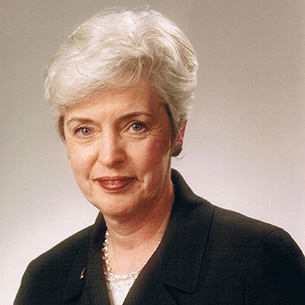
Now Enrolling: The EAQ202 clinical trial seeks to provide young people with cancer a better way to report their experiences during cancer treatment
March 24, 2022
Trial Results: ECOG-ACRIN research round-up – Summer 2022
June 28, 2022Come again? Communicating clearly about risk of recurrence after early-stage breast cancer

 Five years. For many breast cancer survivors, this is a significant milestone. If cancer is going to come back after treatment, it often does so within five years of diagnosis. Yet this is not the case for all types of breast cancer, a fact not known by many of the very patients it affects. For example, estrogen receptor (ER)-positive, HER2-negative breast cancer tends to come back after five years about 50% of the time.1 Patients can take steps to ensure they have the best chance of remaining cancer-free—but are they likely to if they are not aware they are still at risk?
Five years. For many breast cancer survivors, this is a significant milestone. If cancer is going to come back after treatment, it often does so within five years of diagnosis. Yet this is not the case for all types of breast cancer, a fact not known by many of the very patients it affects. For example, estrogen receptor (ER)-positive, HER2-negative breast cancer tends to come back after five years about 50% of the time.1 Patients can take steps to ensure they have the best chance of remaining cancer-free—but are they likely to if they are not aware they are still at risk?
Mary Lou Smith, JD, MBA, and colleagues at the Research Advocacy Network explored this issue through focus groups and interviews with two different groups. The first included women who had never had cancer, to represent the perspective of newly-diagnosed patients. The second group contained women who had received a diagnosis of early-stage breast cancer within the last two years. Below, Mary Lou discusses this research project and its results, presented at the 2021 San Antonio Breast Cancer Symposium.
What inspired this project?
Before this study, we did research with patients with metastatic breast cancer. Their primary concern is disease progression, meaning growth or spread. We asked a lot of questions about that. What does progression mean to them? How did they find out about it?
When it comes to patients with early-stage breast cancer, their primary concern is recurrence, or the return of their cancer. They do not want it to come back. We are now finding that people have recurrence after 10 or 15 years. This is especially true for those with ER-positive, HER2-negative disease. My cancer came back after 21 years. Patients often think of five years as magic, but that is not always the case.
That is what prompted this work—the understanding that recurrence can happen later and the concern that people may think they are home free after five years.
What are the consequences if people think they are in the clear after five years?
They might become less strict with their follow-up care and monitoring. Another major concern is adherence to estrogen therapy, which aims to reduce the chance of cancer coming back. Some people will decide to stop hormone treatment, without consulting their doctor, because of side effects or for other reasons. They might have continued their therapy if they better understood their risk of recurrence.
What are your key findings?
We found that information needs are high. People do not understand recurrence—even those who have been through treatment—and there is a downside to that. When you are first diagnosed, your care team provides so much information. You are overwhelmed and simply do not retain it all.
We also found that communication timing was a central theme. As treatment continues and, ideally, is successful, you have less time with your doctor each visit. By the time you get to endocrine therapy, time with your physician is often limited. Patients do not always make the connection between recurrence risk and endocrine therapy. We found that recurrence risk was not well linked to the recommendation to take a long course of oral (endocrine) therapy that often has significant side effects. Some interviewees were reticent to continue oral therapy, particularly without knowing why it mattered.
Since risk is a complex concept, we wondered if understanding it might correlate with education level. We still think this question is worth exploring with a larger group. But we had one story that got my attention since the patient had a high educational level, yet she was thinking about stopping her endocrine therapy because of the side effects. She did not seem to know the benefit, and it was unclear whether she was going to talk to her doctor or do any research.
In addition to not understanding risk of recurrence, participants also did not grasp other aspects of recurrence. Many of them thought the term ‘distant recurrence’ referred to the length of time between the end of treatment and recurrence. They did not know it meant the cancer had returned in another part of the body far away from where the original tumor first formed. The terms the oncology community uses are not understandable to laypeople. We need to be more careful with our language.
What can patients do to help advocate for themselves and address this problem?
Every time a patient’s treatment plan changes, they should ask why and have a conversation with their doctor. They should not be afraid to ask questions. Patients can take notes or even record their conversations with their doctor. Another option is to bring a friend or family member to help with this.
How do you hope this research will impact patient care?
I hope it will lead to better adherence to treatment and follow-up care, and improved understanding about why adherence is important. We are all better off if we understand the ‘why.’ If you tell me why, then I am more likely to make a decision in favor of my health. I also hope this work will lead to increased trust and shared decision-making between patients and physicians.
Mary Lou Smith is president of the Research Advocacy Network and chair of the ECOG-ACRIN Cancer Research Advocates Committee. She is also the cancer research advocacy representative to the ECOG-ACRIN Executive Committee, co-chair of the ECOG-ACRIN NCORP Community Advisory Committee, and an advocate representative to the ECOG-ACRIN Breast Cancer Committee.1. Hess KR, Pusztai L, Buzdar AU, et al: Estrogen receptors and distinct patterns of breast cancer relapse. Breast Cancer Res Treat 78:105-118, 2003↩

